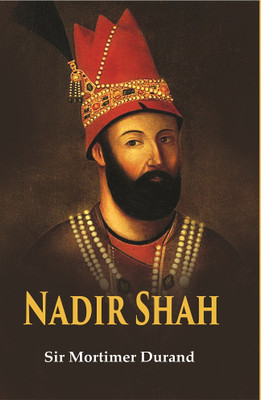Nadir Shah(Paperback, Sir Mortimer Durand)
Quick Overview
Product Price Comparison
About The Book : In the course of the eighteenth century, a Turkoman soldier of fortune, Nadir Kuli, better known to the world as Nadir Shah, raised Persia to the first place among Oriental powers; and notwithstanding the insane hatred which during the latter part of his life he showed towards his sensitive and quick-witted people, who had fought well for him, he is regarded by Persians of the present day as one of the greatest of their national heroes. This book is an attempt to make his character and times more familiar than they are to English readers. After some doubt, I have written it in the form of a romance. I have done this partly with the hope of giving it more life and colour, partly because the existing accounts of Nadir Shah, whether Persian or European, are hardly the material from which exact history could now be written. Many controversies have arisen even about the career of Napoleon. Considering that Nadir Shah spent his life fighting in Asia, and died before Napoleon was born, it is natural that in his case the facts should sometimes have become hopelessly obscured, For example, the blinding of his favourite son, Reza Kuli Khan, is generally regarded as the turning-point of Nadir's career. About The Author : Sir Henry Mortimer Durand, GCMG, KCSI, KCIE, PC (14 February 1850 ŌĆō 8 June 1924) was a British Anglo-Indian diplomat and member of the Indian Civil Service. Born at Sehore, Bhopal, India, he was the son of Sir Henry Marion Durand, the Resident of Baroda and he was educated at Blackheath Proprietary School, and Tonbridge School. Durand entered the Indian Civil Service in 1873. He served as the Political Secretary in Kabul during the Second Anglo-Afghan War (1878ŌĆō1880); was Foreign Secretary of India from 1884 to 1894; and appointed Minister plenipotentiary at Tehran in 1894, where despite being a Persian scholar and fluently speaking the language, he made little impression either in Tehran or on his superiors in London. He left Persia in March 1900, by which time owing to the illness of his wife Ella he had withdrawn from social life and the legation was in a depressed and disorganised state. He served as British Ambassador to Spain from 1900 to 1903, and as Ambassador to the United States from 1903 to 1906. He was appointed a CSI in 1881 knighted with a KCIE in 1888, and a KCSI in 1894 and appointed a GCMG in 1900.


